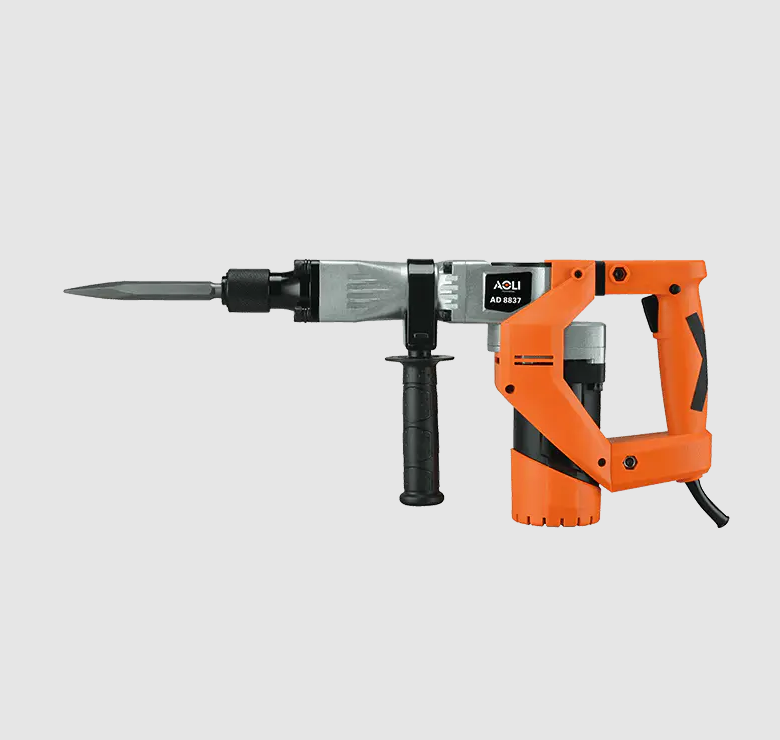When it comes to the operation of power tools, noise is an inevitable byproduct. The China Chipping Hammer Drill, a specialized tool designed for heavy-duty drilling and chipping tasks, is no exception. This article delves into the noise levels associated with the China Chipping Hammer Drill, examining how they compare to other power tools and the potential impact on the work environment.
The China Chipping Hammer Drill is engineered to deliver high torque and power, which are essential for breaking through hard materials such as concrete, masonry, and metal. However, this power comes at a cost, as the tool's motor and hammer mechanism generate significant noise. Noise levels can vary depending on the specific model and the materials being worked on, but it is not uncommon for a China Chipping Hammer Drill to produce noise levels well above 100 decibels (dB), which is the threshold for noise-induced hearing loss.
In comparison to standard electric drills, the China Chipping Hammer Drill is considerably louder. Electric drills, while still noisy, typically operate at lower decibel levels, often ranging from 70 to 90 dB. The additional hammering action of the China Chipping Hammer Drill, which is designed to break up material through impact, contributes to the higher noise output. This feature is what sets the China Chipping Hammer Drill apart from ordinary electric drills, but it also means that users must take extra precautions to protect their hearing.
To mitigate the noise generated by the China Chipping Hammer Drill, many models are equipped with features aimed at reducing sound output. Some manufacturers incorporate noise reduction technologies, such as sound enclosures or advanced motor designs, to dampen the noise. However, these measures can only do so much, and the fundamental nature of the tool's operation means that it will always be louder than a standard electric drill.
The noise produced by a China Chipping Hammer Drill can have a significant impact on the work environment. In industrial settings, where these tools are frequently used, constant exposure to high noise levels can lead to hearing damage over time. Workers must use proper hearing protection, such as earplugs or noise-canceling earmuffs when operating a China Chipping Hammer Drill. Additionally, regular breaks from noise exposure can help to reduce the risk of hearing loss.
Furthermore, the noise generated by the China Chipping Hammer Drill can also affect communication on the job site. In noisy environments, it can be difficult for workers to hear safety instructions or communicate with one another. This can lead to misunderstandings and potentially hazardous situations. Implementing safety protocols that account for the high noise levels is essential in maintaining a safe work environment.
In terms of regulatory compliance, many countries have established noise exposure standards to protect workers from the harmful effects of noise. For instance, the Occupational Safety and Health Administration (OSHA) in the United States sets a permissible exposure limit of 90 dB for an 8-hour workday. The China Chipping Hammer Drill, with its high noise output, can quickly exceed these limits, necessitating the use of hearing protection and other noise control measures.
In conclusion, the China Chipping Hammer Drill is a powerful tool that is indispensable for certain tasks, but its high noise levels are a significant concern. Understanding the noise characteristics of the China Chipping Hammer Drill is crucial for ensuring the safety and well-being of workers. By taking appropriate precautions, such as using hearing protection and implementing noise control measures, the impact of noise on the work environment can be managed effectively. As technology advances, it is hoped that future iterations of the China Chipping Hammer Drill will incorporate even more noise reduction features, making these essential tools safer and more comfortable to use.
https://www.aolitools.com/product/

